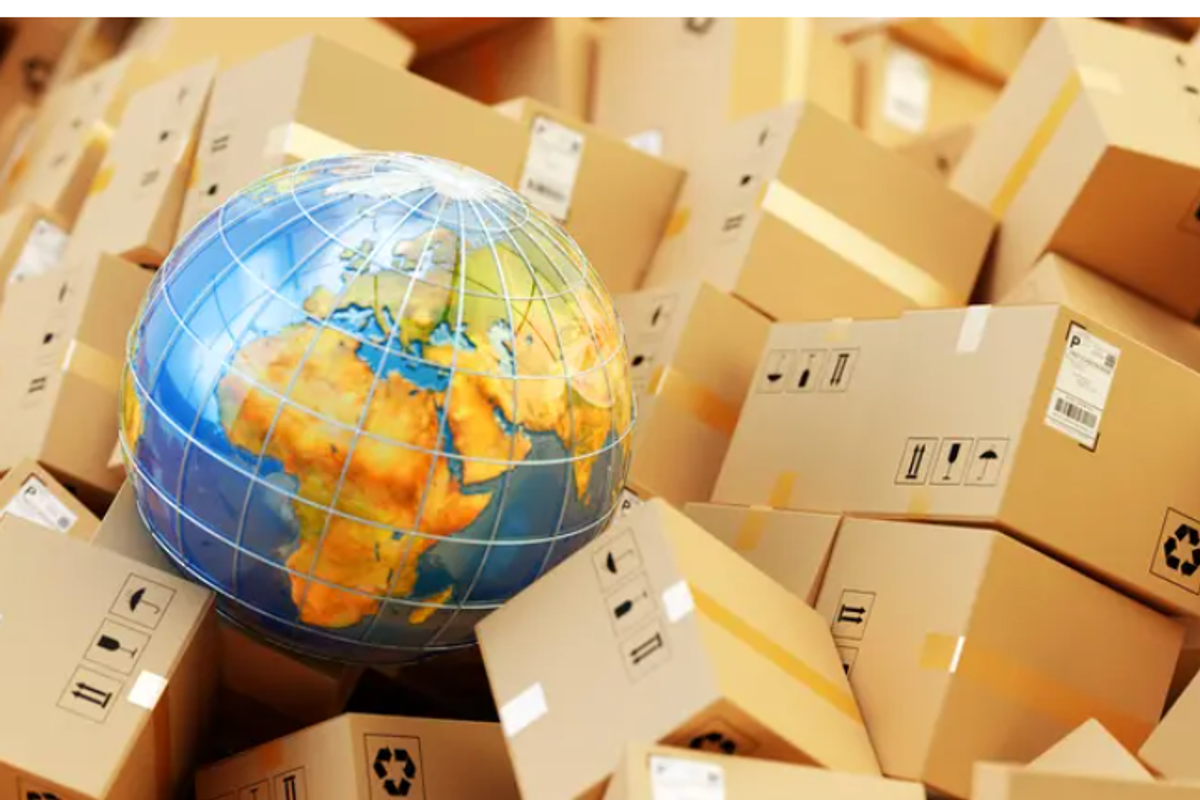
By the time you’re reading this, it’s already too late. While President Donald Trump’s erratic tariffs are wrecking the economy writ large, they’re now going to wreck your personal economy writ small if you happen to like buying things from overseas.
The de minimis rule, which had allowed overseas goods worth less than $800 to enter the country duty-free, ended on Friday. Now, no matter how low the value, import costs apply.
Much of the focus on Trump’s tariffs has been on the increased costs of the goods themselves, noting that the things Americans routinely buy at low costs from overseas will become much more expensive. However, there’s also the issue of increased friction and chaos for overseas sellers, shippers, and foreign postal offices.
The de minimis rule smoothed the way for that low-cost commerce. Goods under that $800 threshold could be shipped directly to consumers, meaning no complicated determinations of tariff costs for sellers and shippers, and buyers didn’t have to go to the post office to pay duty fees to get a $9 Labubu accessory out of hock after it has undergone a full customs inspection.
If Trump’s tariffs were at least stable, sellers and shippers might decide they could deal with the tariff problem. Indeed, big shippers like UPS and FedEx are already equipped to figure out and pay country-specific duty costs. However, many smaller shippers ship through their country’s post office.
In killing the de minimis exemption, Trump also ordered that Customs and Border Protection wouldn’t assess the tariff duties stateside from packages sent via the international postal network. Therefore, post offices overseas must now calculate the duty and pay it to U.S. Customs. That involves the post office first setting up a way to collect tariff duties—yep, the ones that keep changing—from package senders. Then the post office has to pay the duties to CBP. Then the shipment can be handed over to the USPS for delivery within the United States.
While postal services get that sorted, the only real solution in some instances is just to not ship any packages here. Note that “any packages” part. It’s not just that some overseas postal services aren’t going to send you that Labubu accessory purchased from an overseas website tapping into the Labubu frenzy. They’re not going to send any packages at all until there is more certainty about what sending things to the United States looks like.
So, if you were expecting a nice letter with some photographs from a relative in Mexico? That’s a package, and you can’t have it if your relative tried to send it via the country’s postal service.
If your theoretical relative lives in Japan and wants to use Japan Post, they could send you that letter and those photos, and could even throw in trinkets worth up to $100 in value. But if you tried to buy those same trinkets, a Japanese seller can’t send them to you through the country’s postal service. Similar to Australia, where your relative can send those trinkets but must comply with new mandatory declaration requirements regarding the value of the trinkets and their country of origin. If it looks like this is just a purchase in disguise, it can’t be sent.
India, Thailand, South Korea, New Zealand—all of those postal services are now suspending package services, as are Switzerland and Taiwan. See also Austria, Belgium, and portions of Scandinavia.
For an example of how untenable this is, let’s pretend your relative moved to Finland and wants to send you a letter via post. No photos, no trinkets. Just a two-page handwritten letter about how well the little ones are doing at school and how nice summer vacation was. As of Aug. 22, you couldn’t even get that letter, because Finland’s postal service, the adorably named Posti, was dealing with the issue that airlines were refusing to accept anything bound for America, including letters. Then airlines began accepting some items again, so Posti announced it would again be accepting letters to be sent here. But as of Friday? Airlines are now again refusing to send postal items here, so Posti is back to sending nothing, not even cards or letters, to the United States. And you can’t blame them, really.
And it’s not just countries that are suspending package shipments here. DHL, the German shipping group that handles tons of shipments for European sellers, announced it will not ship any business parcels here. Even major companies, like Lego, can’t hang with this chaos and are restricting what they will send here. And good luck if you’re trying to buy from a small Etsy seller or the like.
There is a credible and logical argument to be made that the de minimis exemption was too high, that it had become an import loophole for big companies rather than a way for you to get a sweet vintage fountain pen from a French seller on eBay without both of you having to be import-export specialists. There’s even a credible and logical argument to be made that the exemption allowed for unsafe or knockoff goods to enter the country in large quantities without ever being inspected.
But those aren’t the arguments the administration is making.
Trump is a fool and has no idea what the exemption is, but he tries to cover it up with hyperbole: “It's very important, de minimis. It's a big deal. It's a big scam going on against our country, against really small businesses, and we've ended it. We put an end to it.” He’s also sure this will make it harder for fentanyl to enter the country, presumably under the theory that your relative can no longer tuck a couple of grams in with the family photos.
In the meantime, please enjoy America’s retreat from the global economy. Maybe we’ll just start making Legos and Labubu stateside and fix the economy that way?
Reprinted with permission from DailyKos.








